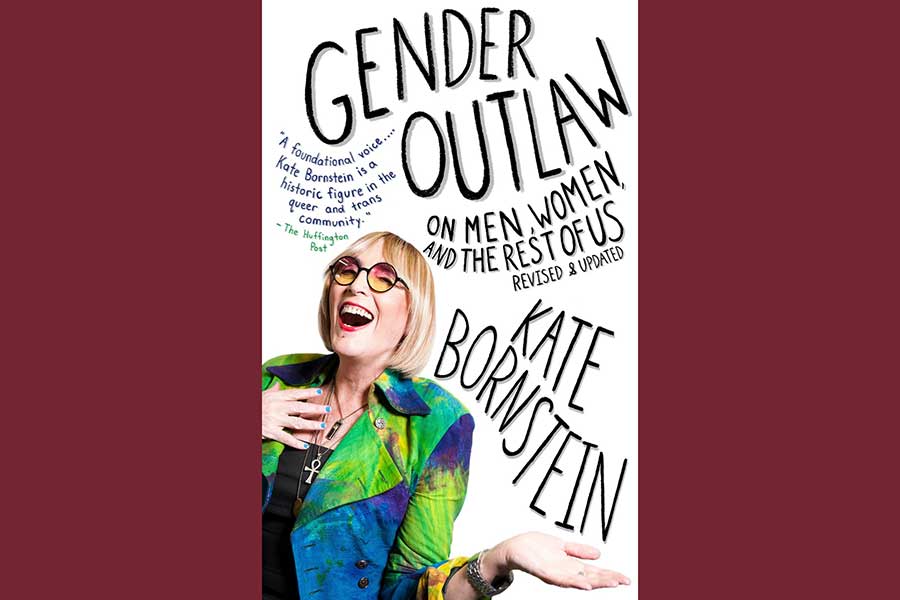Renowned author, playwright, gender theorist and performance artist Kate Bornstein is coming to Philadelphia for a book signing and discussion on the updated edition of her landmark work, “Gender Outlaw: On Men, Women and the Rest of Us.”
Bornstein, who was assigned male at birth, underwent gender-confirmation surgery in 1986 to become a woman. And while she said she loved her transformation, she came to realize she identified neither as male nor female.
So she began to wonder if the gender binary is restricting not only to trans people, but to anyone who has ever felt like less than the “perfect” man or woman.
To that end, she wrote the first book of gender theory by a trans person. “Gender Outlaw” was ahead of its time when it was published in 1994, and blended her own stories and experiences with an investigation into notions of gender.
We asked Bornstein if she could have envisioned the leaps forward and backward that society has made in its perception and treatment of the trans community in the last 20 years.
“Of course not,” Bornstein said. “But to pull it apart, where it has leapt forward and where it hasn’t leapt forward and where it’s all about to fall apart, when I wrote about transgender, I was writing about outlaws. I wasn’t writing about men who wanted to be women and women who wanted to be men; that was transsexual. Language changed. Identities have changed. Respectability has changed. And nowadays, according to Time Magazine, who said transgender has reached a tipping point, transgender to some people has become an umbrella term. Everybody is fucking around with gender. Transgender is most commonly thought as what used to be called transsexuality. The big leap forward transgender, in that sense, has made is they understand that genitalia has nothing to do with it. That’s a huge fucking leap forward. But in that leap forward, the transgender movement, using it as a binary identity — which is not bad, it just is — has left behind once again the non-binary trans people.”
Bornstein said the revised edition of “Gender Outlaw” updated the language and terms used to reflect the broadening spectrum of gender and sexuality that has occurred over the last two decades.
“Trans is now the umbrella term and we have non-binary and genderqueer and drag kings and drag queens and street fairies and cross-dressers and transvestites, who all fall under the transgender umbrella,” she said. “Transgender is what is part of LGBT: men and women who have transitioned into another gender. For everybody else under the trans umbrella, the T is not present. The T is silent because everybody else who falls under that trans umbrella falls under the Q for queer. And that presents something really interesting that I never would have thought of when I wrote ‘Gender Outlaw.’”
Bornstein added that there was a time when all identities in our modern LGBTQ community fell under the umbrella of “gay.”
“Frist off, there was barely lesbian and gay,” she said about the era before “Gender Outlaw” was released. “It was all gay politics. Lesbian and gay took years to come about and they fought like cats and dogs. And they fought worse when bisexuals wanted a letter. Then it took well over a decade for T to enter the equation. The interesting thing to me is that LGBT had to add the Q and once it added the Q, it admitted that there was Q on one side and LGBT on the other. So LGBT has in fact become the conservative voice of sexuality and gender. It has in fact become straight. I’m not saying that’s bad. My gender expression is completely straight. I walk through the world like a little old lady. There’s nothing genderqueer about me. I’m straight. I embrace it. I love it. It gives me great joy.”
Kate Bornstein hosts a discussion and signing of “Gender Outlaw: On Men, Women and the Rest of Us” 7:30 p.m. Dec. 1 at Central Library, 1901 Vine St. For more information, call 215-567-4341 or visit www.katebornstein.com.

